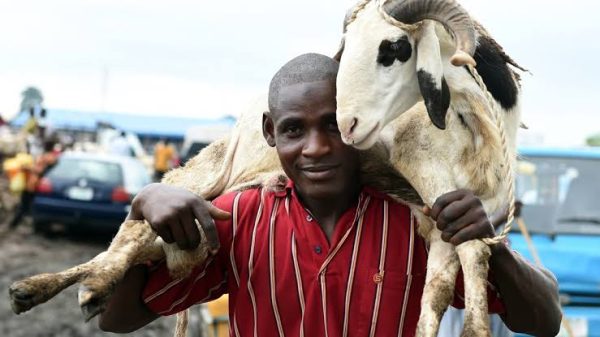What you should know as Muslims celebrate Sallah

Sallah, also known as Eid al-Adha or the Feast of Sacrifice, is an important religious holiday celebrated by Muslims worldwide. Here are some key things to know about Sallah:
1. Religious Significance: Sallah commemorates the willingness of Prophet Ibrahim (Abraham) to sacrifice his son as an act of obedience to God. According to Islamic tradition, just as Ibrahim was about to sacrifice his son, Allah intervened and provided a ram to be sacrificed instead. Sallah serves as a reminder of Ibrahim’s devotion and God’s mercy.
2. Date: Sallah is celebrated on the 10th day of Dhu al-Hijjah, the 12th and final month of the Islamic lunar calendar. The lunar calendar is approximately 11 days shorter than the Gregorian calendar, so the date of Sallah varies from year to year and shifts earlier each year.
3. Pilgrimage to Mecca: Sallah coincides with the annual Hajj pilgrimage to Mecca in Saudi Arabia. The Hajj is considered one of the Five Pillars of Islam, and Muslims who are physically and financially able are required to undertake this pilgrimage at least once in their lifetime. The culmination of the Hajj is marked by the celebration of Sallah.
4. Animal Sacrifice: One of the central rituals of Sallah is the sacrifice of an animal, typically a sheep, goat, cow, or camel. The sacrifice symbolizes the willingness to give up something valuable for the sake of God. The meat from the sacrificed animal is divided into three parts: one-third is given to the poor and needy, one-third is shared with family and friends, and one-third is kept for personal consumption.
5. Prayers and Sermons: On the day of Sallah, Muslims gather at mosques or designated prayer grounds for special congregational prayers known as the “Eid prayer.” These prayers are led by an imam and include a sermon that emphasizes the importance of faith, sacrifice, and gratitude. Muslims dress in their finest clothes and often exchange greetings and gifts after the prayers.
6. Festive Atmosphere: Sallah is a joyous occasion for Muslims, marked by family gatherings, feasting, and merriment. People decorate their homes, give gifts, and children receive new clothes and toys. It is a time for forgiveness, reconciliation, and strengthening community ties.
7. Global Celebration: Sallah is observed by Muslims worldwide, transcending cultural and national boundaries. It is an occasion that brings Muslims together in celebration of their shared faith and values. Local customs and traditions may vary, but the core elements of prayer, sacrifice, and celebration remain consistent.
It’s important to note that specific practices and traditions related to Sallah may differ among various Muslim communities and cultures. However, the fundamental significance of the holiday remains consistent across the Muslim world.